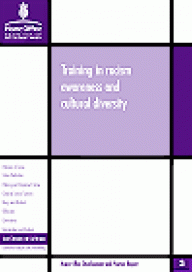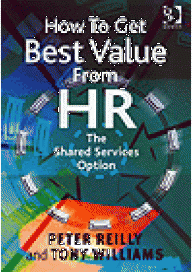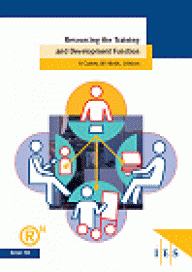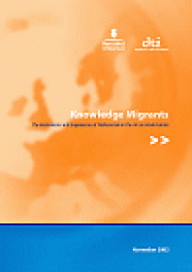Publications
 We author and publish a range of resources to keep you up to date with the latest developments in employment, labour market and human resource policy and practice.
We author and publish a range of resources to keep you up to date with the latest developments in employment, labour market and human resource policy and practice.
All our pdf publications are free to access.
-
📄
Childcare, 16-19 Year Old Parents and Further Education
Dench S, Evans C | Jan 2003 | Department for Education and SkillsThis publication is no longer available. A key part of Government education and training policy is the encouragement of more people from low income families and disadvantaged backgrounds to participate in further education. The provision of student support is a central part of the policy. It is recognised that different groups of young people experience particular barriers and difficulties when accessing further education. One group in which there is considerable interest is 16-19 year old parents and childcare has been found to be a major barrier for these parents.
-

Training in Racism Awareness and Valuing Cultural Diversity
Tamkin P, Aston J, Cummings J, Hooker H, Pollard E, Rick J, Sheppard E, Tackey N D | Jan 2003 | Home OfficeThe report of the Stephen Lawrence Inquiry acknowledged the existence of institutional racism and recommended that the provision of training be reviewed (recommendation 54). This good practice guide provides recommendations on what constitutes effective practice and guidance on how practice can be improved and strengthened.
-
📄
A Review of Training in Racism Awareness and Valuing Cultural Diversity
Tamkin P, Aston J, Cummings J, Hooker H, Pollard E, Rick J, Sheppard E, Tackey N D | Jan 2003 | Home OfficeThe report of the Stephen Lawrence Inquiry acknowledged the existence of institutional racism and recommended that the provision of training be reviewed (recommendation 54). The findings of a study for the Home Office have been brought together in this detailed research report. A good practice guide is also available that provides recommendations on what constitutes effective practice and guidance on how practice can be improved and strengthened.
-

How To Get Best Value From HR
The Shared Services Option
Reilly P, Williams T | Jan 2003 | GowerIn ‘How To Get Best Value From HR’ the authors explain what shared services are and what they look like for the HR function. They describe why organisations opt for shared services and what activities are included. The book also sets out the relationship between shared services and the other HR activities, and between HR and line management.
-
📄
New Deal 50plus: Sustainability of Employment
Atkinson J, Evans C, Willison R, Lain D, van Gent M | Jan 2003 | Department for Work and PensionsThis research sought to assess the longer-term outcomes of ND50plus, and specifically to ask how far clients had stayed in work after the wage top-up provided by the Programme had expired. This publication is no longer available.
-
📄
The 'Safe Learner': Exploring the Concept
Kerrin M, Silverman, Thomson L | Nov 2002 | Learning and Skills CouncilDeveloping and promoting the concept of the 'safe learner' was an important part of the Learning and Skills Council's approach to learner health and safety. This report was used to inform policy and promote good practice in health and safety on LSC funded programmes. This was achieved through, for example, identifying what characterises a 'safe learner' and how supervisors can encourage safe behaviours amongst learners.
-

Resourcing the Training and Development Function
Carter A, Hirsh W, Aston J | Oct 2002 | Institute for Employment StudiesThis study looks in some detail at how training and development was being organised and resourced in a range of large organisations across the private and public sectors. It also predicts some future changes in the patterns of resourcing training and development.
-

Knowledge Migrants
The motivation and experience of professionals in the UK on work permits
Pearson R, Morrell J | Oct 2002 | European CommissionThe Department of Trade and Industry and Home Office commissioned NOP Business and IES to explore the push and pull factors that affect the decision of skilled individuals to migrate to the UK. The study surveyed non-UK nationals from outside the European Economic Area who were recent arrivals in the UK, and working in four occupational categories that are part of global markets. This publication is no longer available.
-
📄
Key Indicators of Women's Position in Britain
Dench S, Aston J, Evans C, Meager N, Willison R, Williams M | Oct 2002 | Cabinet Office, Women and Equality UnitThe aim of this project was to identify a set of key indicators for mapping women's position relative to that of men across a wide range of areas, and to draw together reliable and robust statistics from different sources, to provide a comprehensive baseline for monitoring progress. It also outlined recent trends in these indicators, so future changes could be put into context. This publication is no longer available.
-
📄
Education Business Link Clusters Evaluation
Hillage J, Barry J, Pike G | Oct 2002 | Department for Education and SkillsIn September 2000, nine clusters (small groups) of schools were invited to work in partnership to develop joint approaches to education business link (EBL) activity, with the support of a specially appointed broker. A pilot cluster was established in each of the nine English regions. The pilots were funded for a total of two years to test the impact of a broker working with a specific cluster of schools - particularly in the areas of developing a progressive experience of the world at work from an early age up to pre-16 work experience and teacher placements. The Institute for Employment Studies (IES) was commissioned in September 2000 to develop a national evaluation framework and to use it to assess the value of the pilots. IES conducted a range of visits to the pilots, interviewing brokers and other intermediaries and representatives from schools and employers and held a series of workshops involving representatives from the pilots.
